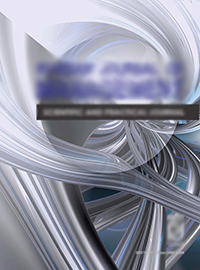At present remains urgent aid to oncologic patient in IV - oh the stage of disease. In proportion to the advance of the contemporary procedures of treatment oncologic science enlarges the possibilities of an improvement in the quality of the life of the named contingent of patients. Because of the new technologies in oncology it is possible to conduct tsitoreduktivnye, palliative and maloinvazivnye operations and manipulations, which make it possible to increase the quality of the life of this heavy contingent of patients. As a result surgical treatment and maloinvazivnykh opretsiy and manipulations in oncologic sick IV-oh stage appears surgical injury, oxidizing stress, disturbance of homeostasis and oppression of immunity, which leads to an even larger immunodeficiency in the named contingent of patients. The oppression of the unspecific resistibility of organ-ism as a result occurs. The application of adaptogena of the elixir of Altai (Vitavis) in combination with the ionic- activated aqueous means makes it possible to level and to reduce on no oxidizing stress of the organism of oncologic patients in the last stage of disease. After the application of treatment of the named technology the unspecific resistibility of organism rises, immune-scarcity considerably decreases. Powerful antioxidant – the ionnoaktivirovannoe aqueous means strengthens the action of immunnomodulyatora of adoptogena of the elixir of Altai (Vitavis), which leads to the decrease of postoperative infectious complications in oncologic sick IV-oh of the stage of disease, reduces postoperative period, improves the quality of life and enlarges indications to conducting even of complex operations, maloinvazivnykh operations and manipulations.
elixir is Altai (Vitavis), the ionic- activated aqueous means and oncologic sick IV-oh the stage of disease.
1. Assesorova Yu.Yu., Ponomareva L.A., Kireev G.V., Boyko I.B. Predshestvenniki N-nitrozosoedineniy v pit´evoy vode i zabolevaemost´ zlokachestven¬nymi novoobrazovaniyami organov pishchevareniya v Tashkente. Gigiena i sanitariya. 2011. № 1. S. 39-42.
2. Ashbakh D.S. Zhivaya i mertvaya voda protiv svobodnykh radikalov i stareniya. M.: izd-vo Astrel´, AST, 2011. 191 s.
3. Ashbakh D.S. Zhivaya i mertvaya voda. Lekarstvo ot 100 bolezney. M.: izd-vo Astrel´, AST, 2011. 159 s.
4. Ashbakh D.S. Vy ne bol´ny - vy okisleny. SPb.: Vektor, 2012. 224 s.
5. Bakhir V.M. Elektrokhimicheskaya aktivatsiya. 2 ch. M.: VNIIIMT, 1992. 657 s.
6. Belonosov I.S., Yakovleva E.G., Yakovlev K.I. Izmenenie nekotorykh biokhimicheskikh pokazate-ley krovi u donorov pri prieme eleuterokokka na fone krovopuskaniya. Tez. dokl. 12-y nauch. konf. Kha-barovskogo med. in-ta. Khabarovsk, 1965. S.211-212.
7. Berchenko G.N. Morfologicheskie aspekty zazhivleniya oslozhnennykh ran: Avtoref. dis.... d-ra med. nauk. M., 1997. 43 c.
8. Borisenkov M.F., Anisimov V.N. Risk razvitiya raka u zhenshchin: Vozmozhnaya svyaz´ s geograficheskoy shiro¬toy i nekotorymi ekonomicheskimi i sotsial´nymi faktorami. Voprosy onkolo-gii. 2011. T. 57. S. 343-354.
9. Bocharova O.A. Adaptogeny kak sredstva profilakticheskoy onkologii.. Vestnik RAMN. 1999. № 5. S. 49-53.
10. Buchnov A.D., Grechko A.T., Murga Ya.T. Farmakoterapiya «bystrodeystvuyushchimi adapto¬ge¬nami» narusheniy pri gipotrofii u prizyvnikov.. Problemy reabilitatsii. 2000. №1. S. 144-147.
11. Bofetta P., Nyberg F. Contribution of environmental fac¬tors to cancer risk.. Brit. Med. Bull. 2003. Vol.68. P.71-94.
12. Cantor K.P. Carcinogens in drinking water: the epi¬demiologic evidence. Reviews on Environmental Health. 2010. Vol. 25. P. 9-16.





